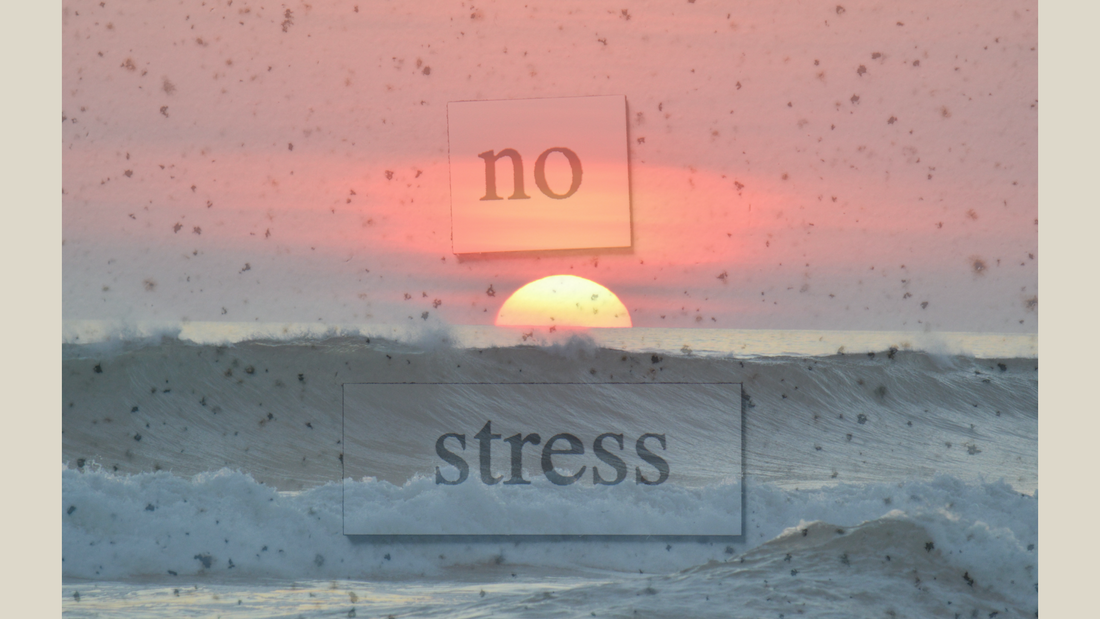
Understanding Cortisol: What Stress Does to Your Body and How to Lower It Naturally
Share
We talk a lot about stress, but most of us don’t realize there’s a key hormone at the center of it all: cortisol. Known as the “stress hormone,” cortisol plays a crucial role in your body’s survival system—but when it’s constantly elevated, it can wreak havoc on your health, mood, skin, sleep, and even your weight.
Let’s break it down: what is cortisol, what does it actually do, and how can we keep it balanced—naturally?
What Is Cortisol?
Cortisol is a hormone made by your adrenal glands—small glands that sit right on top of your kidneys. It’s part of your body’s fight-or-flight system, working with adrenaline to help you react to danger. In short bursts, it’s helpful. It helps regulate:
-
Blood sugar
-
Metabolism
-
Inflammation
-
Blood pressure
-
Immune response
But here’s the problem: cortisol is meant to spike in emergencies—not stay high all day.
What Happens When Cortisol Is Too High?
Chronic stress keeps cortisol levels elevated, which can lead to a cascade of health issues, including:
-
Anxiety and irritability
-
Poor sleep or insomnia
-
Weight gain, especially around your belly
-
Acne, oily skin, or hair loss
-
Cravings for sugar and carbs
-
Brain fog and memory problems
-
Weakened immune system
-
Irregular periods or hormonal imbalances
Think of cortisol like a faucet—when it’s open for too long, it floods the system.
How to Lower Cortisol Naturally
You don’t have to eliminate all stress (that’s not realistic). But you can teach your body how to respond better, calm your nervous system, and support your adrenals. Here are powerful, natural ways to lower cortisol:
1. Get Real Sleep
Your body detoxes cortisol while you sleep. Aim for 7–9 hours, and stick to a consistent bedtime. No screens at least 30 minutes before bed, and try magnesium (more on that below).
2. Eat in a Blood Sugar–Balanced Way
Skipping meals or eating lots of sugar causes cortisol spikes. Try:
-
Protein and fiber with every meal
-
Complex carbs like oats, sweet potatoes, and brown rice
-
Healthy fats like avocado, olive oil, nuts, and seeds
Don’t go too low-carb if you’re stressed—your body needs carbs to feel safe.
3. Move—But Don’t Overdo It
Moderate exercise (like walking, yoga, swimming, or light strength training) can lower cortisol. But too much HIIT or cardio can raise it. Listen to your body.
4. Breathe Deeply
Try box breathing (inhale 4, hold 4, exhale 4, hold 4) or long exhales to activate your parasympathetic nervous system—the rest-and-digest mode. Just 2 minutes a day can help.
5. Get Morning Sunlight
Light on your eyes and skin early in the day helps regulate your circadian rhythm, which lowers cortisol naturally at night.
6. Laugh, Hug, or Cuddle
Physical touch and laughter release oxytocin, a calming hormone that reduces cortisol. Even petting your dog counts.
Supplements That May Help Lower Cortisol
Supplements can give your body the extra support it needs—especially during seasons of high stress. Always talk to your healthcare provider first, especially if you're on medications or managing a chronic condition.
🌿 Adaptogens
These herbs help your body adapt to stress and restore balance.
-
Ashwagandha: One of the most researched adaptogens; it may reduce cortisol by up to 30%.
-
Rhodiola Rosea: Helps with energy and resilience; great if stress is making you feel exhausted.
-
Holy Basil (Tulsi): Calms the mind and lowers stress-induced inflammation.
💊 Magnesium (Glycinate or Threonate)
Magnesium helps calm the nervous system, reduce anxiety, support sleep, and ease muscle tension. Glycinate is especially good for stress and sleep.
🌞 Vitamin D
Low vitamin D is linked to higher cortisol. Daily sunlight and supplementation can support hormone balance.
🧠 L-Theanine
Found in green tea, this amino acid promotes relaxation without drowsiness. Great if your stress shows up as mental chatter or anxiety.
💚 Phosphatidylserine
Shown in studies to blunt cortisol spikes from exercise and chronic stress. Also helps with memory and focus.
Final Thoughts
Stress is part of life—but being in a constant state of “survival mode” isn’t. If you’re experiencing symptoms of high cortisol like fatigue, anxiety, weight gain, or sleep disruption, it’s worth listening to your body. With consistent, gentle support—from nutrition and sleep to mindfulness and supplements—you can help your nervous system reset and restore balance.
Peace is a practice. It’s not about avoiding stress altogether, but learning how to anchor yourself in the storm.
Stay in the Flow
If you’re craving more ways to slow down, support your wellness, and live in rhythm with nature, join our Pacifico Waves community.
🌀 Sign up for our newsletter for holistic living tips, coastal-inspired content, and first access to new arrivals and exclusive offers.
🌿 Follow us on Instagram and Pinterest for weekly moments of calm, behind-the-scenes adventures, and a glimpse into life lived tides to trails.